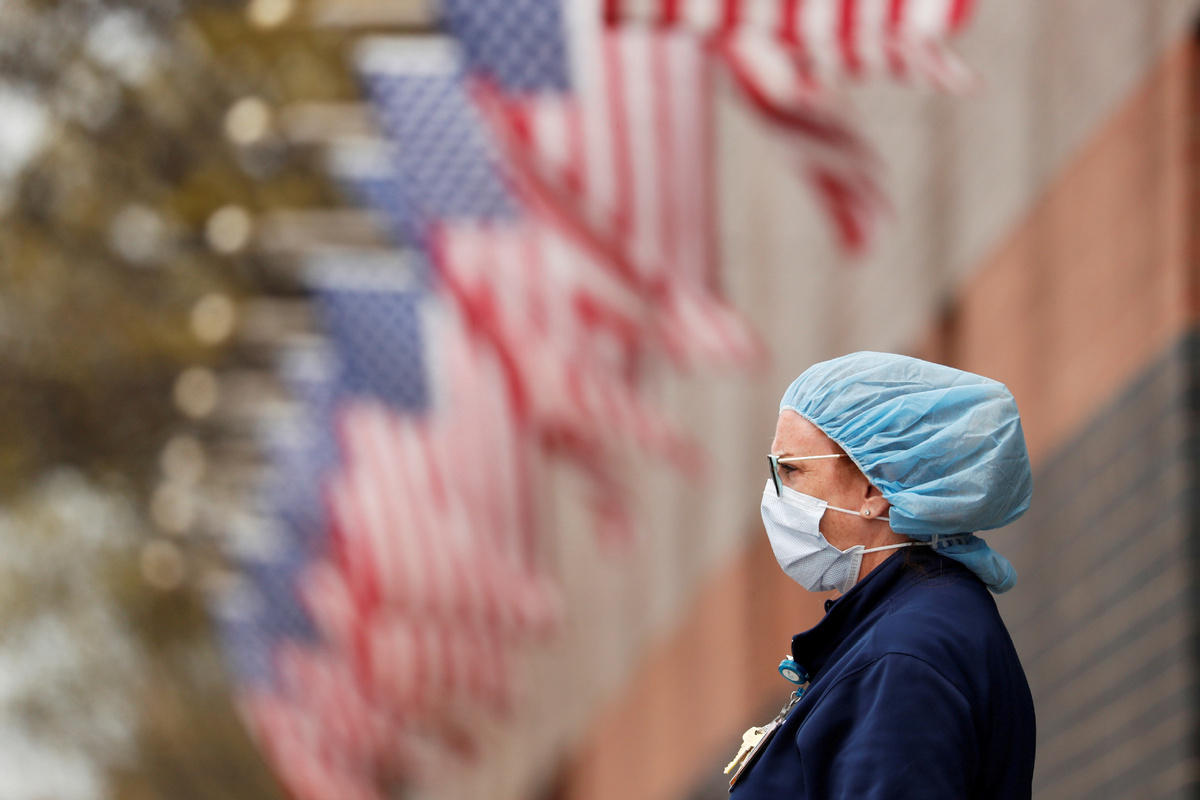Blame game will not help contain outbreak


The politicization of the novel coronavirus pandemic by some politicians and media outlets is not surprising, because people have done so even with previous disease outbreaks. In my newest book, The City in Need, I have written that this coronavirus outbreak "happened at the wrong time and in the wrong place". The epidemic broke out just before the world's largest annual migration of people (Spring Festival holiday) and roughly at the center of the most populated country.
Given these two factors, and considering the fluid mobility of people in today's world, it was very difficult to control the spread of the virus. What made matters worse was the lack of multinational cooperation in the early stages to contain the outbreak.
Yet some Western leaders and media outlets are blaming China, without any evidence to prove their claim, for the global spread of the virus.
First, contrary to what some media outlets claim, different countries have been dealing with different kinds of outbreaks, mostly brief, almost all the time. Some of these outbreaks are recurring or seasonal in nature and some are easily detectable-and containable-while others are not. But the world encounters a COVID-19-like outbreak perhaps once in a century, which makes such diseases difficult to detect, diagnose, study and treat, particularly in the initial days.
Second, testing methods and standards were not known in the early stage of the outbreak, because it takes weeks to find the methods of accurate testing. In fact, despite entering the fifth month of the outbreak, we have limited knowledge about the disease, and how it should be treated. And many countries have little access to testing kits. So, how can a country hit by an unknown disease have testing kits and other medical equipment ready to deal with a serious health crisis?
Third, China's response to the outbreak was fast and effective contrary to the baseless criticism of some foreign politicians. Within days of discovering that human-to-human transmission was possible, China locked Wuhan, capital of Hubei province and the epicenter of the outbreak in China-and after a few days it locked down the entire province of Hubei. In response, some foreign politicians and media outlets said China was overreacting to the virus threat, yet their countries adopted the same measures later to control the epidemic.
Also, the stringent measures implemented by many Chinese provinces were the result of collective action at the national level. Similar actions were taken by some Southeast Asian and African countries, and East Asian states such as the Republic of Korea. This shows the outbreak would not have had such a severe impact on the other countries had they joined hands to take collective action against the outbreak right from the early stage.
Fourth, many countries failed to prepare to fight the virus, as they didn't take strict and effective measures to control the virus at home and prevent it from spreading abroad.
As early as Jan 30, the World Health Organization declared a global health emergency, which should have alerted other countries against the imminent danger. On the same day, the US secretary of commerce said the situation offers an opportunity to accelerate the return of jobs from other countries to the United States-and yet the US is accusing the WHO of hiding facts and favoring China.
Besides, the European Union left Italy to fend for itself in the fight against the pandemic, and the rest of the world did little to lift the sanctions against Iran to help it contain the virus. Also, Brazil remained in denial mode, Spain allowed huge rallies to be held even as the virus was spreading, the United Kingdom delayed taking measures against the outbreak, and other countries refused to reduce the flow of tourists for weeks, so as to earn as much tourism revenue as possible. As a result, the crucial period of at least four weeks in February and March were lost, which could have been used to strengthen the global front against the pandemic.
Fifth, several studies suggest the virus has mutated and developed new strains, which could further complicate the development of a vaccine.
Sixth, China or for that matter any other country could not have predicted that the outbreak would become such a huge global threat. Nor is it possible for any country to predict today what the situation would be three or four months from now. But we can say for sure that COVID-19 is not going to disappear in the next three or so months-unless a cure or vaccine is developed, which appears almost impossible given the lack of international cooperation and effective global governance on public health issues.
In short, it is unfair to blame China or the WHO for the situation the world is in today, because both have been warning against the threat the disease poses to the world. So all countries should stop playing blame games, as they don't help any country or cause, and instead join hands to find a solution to this unprecedented global public health problem and invest in a healthy future.
The author is head of Department of Architecture and Built Environment, the University of Nottingham Ningbo China. The views don't necessarily reflect those of China Daily.

































